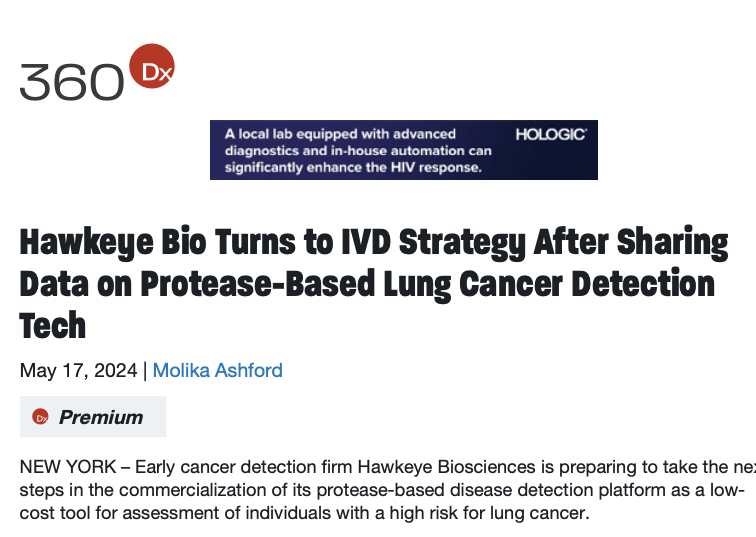Hawkeye Bio Turns to IVD Strategy After Sharing Data on Protease-Based Lung Cancer Detection Tech
NEW YORK – Early cancer detection firm Hawkeye Biosciences is preparing to take the next steps in the commercialization of its protease-based disease detection platform as a low- cost tool for assessment of individuals with a high risk for lung cancer.
The company, which was founded in 2019, has been working quietly behind the scenes for the last four years to refine and validate its technology, and has ongoing collaborations in in China and Europe that CEO and cofounder André de Fusco said it believes will allow it to establish its kits as in vitro diagnostics and market them as an affordable and easily accessible lung cancer screening option.
Although Hawkeye believes the technology could have potential in other disease areas like neurology, its near-term focus is on establishing this first lung cancer application.
The company recently published the first data describing its technology in detail and calculating the performance of its kits. In the paper, which appeared last month in the Nature journal Communications Medicine, authors reported that the assay could detect 90 percent of stage I cancers with 82 percent specificity.
Hawkeye's second cofounder and CSO Paul Dempsey said that the firm's platform is an evolution of work initiated by Stefan Bossman at Kansas City Medical Center.
Bossman had developed an in vitro platform for protease detection, aiming to be able to achieve high enough sensitivity to detect protease activity in a blood sample.

